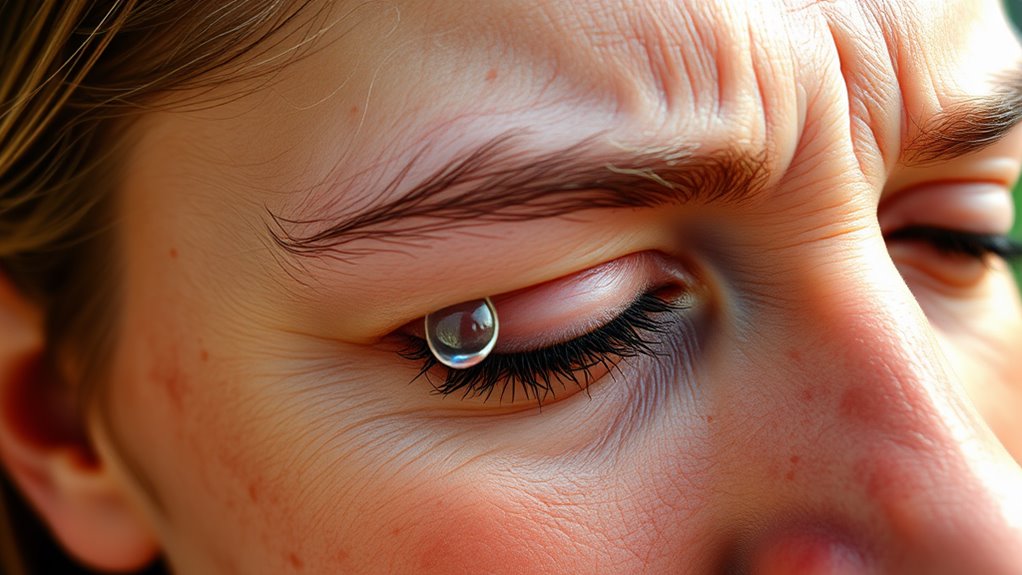What Your Skin Is Telling You About Your Stress Levels
Your skin is a reflection of your stress levels. High stress can trigger hormone release, particularly cortisol, leading to issues like acne, eczema, and premature aging. You might notice increased oil production, inflammation, or changes in skin texture as signs of stress. Poor skin barrier function may also result in dryness and irritation. Understanding these indicators can guide you in managing stress for better skin health, and there’s more you can do to improve your situation.
The Connection Between Stress and Skin Health
Have you ever noticed how stress can manifest on your skin?
When you experience stress, your body releases hormones like cortisol, which can lead to various skin signs.
This hormonal surge increases oil production, clogging pores and potentially causing breakouts.
Additionally, stress can impair your skin’s barrier function, making it more susceptible to irritation and inflammation.
You might also observe changes in skin texture or tone, as stress influences blood flow and nutrient delivery.
Understanding this connection between stress and skin health is essential for addressing underlying issues and promoting overall well-being.
Recognizing these skin signs may help manage stress more effectively. Furthermore, chronic stress can lead to premature aging, as the continual release of cortisol accelerates the breakdown of collagen and elastin in the skin.
Common Skin Issues Linked to High Stress Levels
High stress levels can lead to several common skin issues that may greatly impact your appearance and confidence. Stress triggers hormonal changes, which can manifest in various skin conditions. Below is a summary of these issues:
| Skin Issue | Description |
|---|---|
| Acne | Increased oil production leads to breakouts. |
| Eczema | Stress exacerbates inflammation and irritation. |
| Psoriasis | Flare-ups occur due to immune response changes. |
| Rosacea | Stress can trigger redness and flushing. |
| Dry Skin | Stress can disrupt the skin barrier, causing dryness. |
Recognizing these issues can help you manage stress effectively. Additionally, understanding common skin conditions can provide insights into how stress may be affecting your overall health.
How Stress Affects Skin Aging
How does stress accelerate the aging process of your skin?
Chronic stress triggers the release of cortisol, leading to increased inflammation and breakdown of collagen. This compromises skin elasticity, resulting in fine lines and wrinkles.
Additionally, stress impairs skin barrier function, making it less effective at retaining moisture. You may notice a dull complexion and uneven skin tone due to reduced blood flow.
Furthermore, stress can exacerbate skin conditions such as acne and eczema, further contributing to an aged appearance. Notably, poor sun protection can further compound the damaging effects of stress on your skin.
Ultimately, managing stress is essential for maintaining youthful, vibrant skin and slowing the aging process.
Tips for Managing Stress to Improve Skin Condition
Effective stress management is essential for enhancing your skin’s condition and overall health.
To reduce stress, incorporate regular physical activity into your routine; exercise releases endorphins that positively affect mood and skin health.
Practice mindfulness techniques, such as meditation or deep-breathing exercises, to lower cortisol levels.
Secure adequate sleep, as restorative rest plays a critical role in skin regeneration.
Maintain a balanced diet rich in antioxidants and omega-3 fatty acids, which can improve skin resilience. Additionally, consuming antioxidant-rich foods can significantly enhance skin appearance and support the body’s natural healing processes.
Finally, establish a skincare regimen tailored to your skin type, as consistent care can also mitigate stress-related skin issues and promote a healthy complexion.
When to Seek Professional Help for Skin Concerns
When should you consider seeking professional help for skin concerns? If your skin shows persistent signs of distress, it’s essential to consult a dermatologist. Look for symptoms that don’t improve with home remedies, worsen over time, or are accompanied by other health issues. Additionally, understanding common skincare routine mistakes can help you recognize whether your symptoms may stem from improper at-home care.
| Symptom | Duration | Action Required |
|---|---|---|
| Severe acne | 3 weeks | Schedule a dermatology visit |
| Persistent dryness | 2 months | Consult a skincare specialist |
| Unexplained rashes | 1 week | Seek immediate evaluation |
| Skin discoloration | 4 weeks | Get a professional assessment |
| Itching or irritation | 1 week | Contact a healthcare provider |

